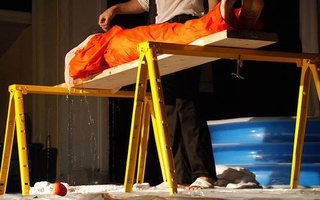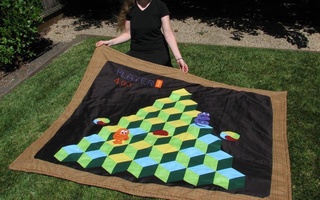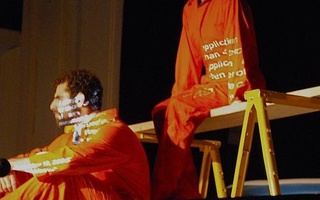AT: After the Restoration, the Comedy of Manners took over as the dominant form of drama, so theater began to focus more on language and wit and there was less brute physicality. Think about the precursors to the Oscar Wilde-type play, where it's all about the aristocracy sitting around pontificating about how wealthy and bored they are. Throw some torture in there and it just wouldn't work.
THC: Was there a definite ending point for stage torture or was it more of a gradual transition?
AT: It was a gradual transition. The Restoration comedies were very different than the Restoration tragedies. You can already see in them the beginnings of the Comedy of Manners. The comedy vein of Restoration drama just seemed to last longer than the tragedy vain, which simply lost popularity and died off. If you've seen the stage rack once or twice or ten times, it loses its effectiveness whereas each witty language play is quite different and can keep your interest longer.
THC: Was there any force after the Restoration that fulfilled the social need--if in fact there is one--to see staged depictions of violence?
AT: Well, the stage itself became very different after the Restoration. Instead of these big public arenas for all the classes, it was removed into the wealthy homes. Lord and Lady So-and-So would decide to have a play put on in their home, and they probably didn't want the stage rack dragged into their living room.
Read more in Arts
Life on the High-WireRecommended Articles
-
 A Tortured Affair
A Tortured Affair -
 New Courses, New You
New Courses, New You -
 A Tortured Affair
A Tortured Affair -
Atul Gawande Criticizes Supermax PrisonsSupermax prisons, which are designed to hold prisoners in prolonged and strict solitary confinement, are ineffective, expensive, and detrimental to mental health, surgeon and journalist Atul Gawande said during a speech at Harvard Law School yesterday.
-
Change We Can Believe In?Some people ask whether terrorists should have rights. But there is no way to tell who is a terrorist and who isn’t without some sort of fair process.
-
POSTCARD: In the Heart of DarknessIt is impossible to describe the feeling of listening to someone praise a man who was responsible for the torture and death of thousands of Chilean citizens during his brutal 17-year regime.













